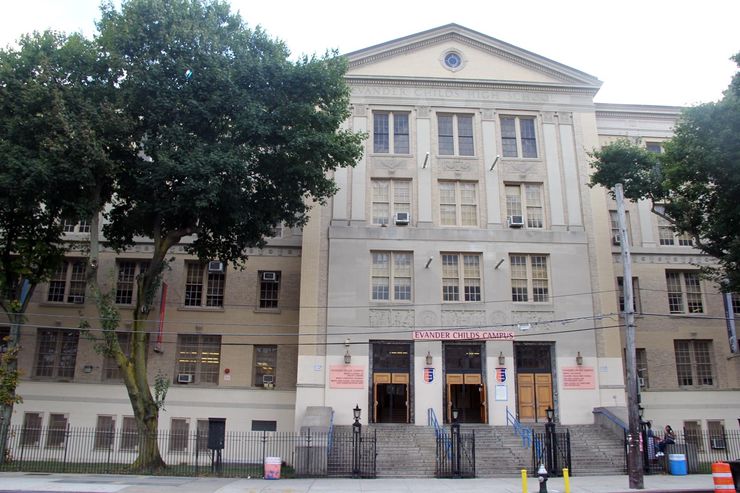This summer, I worked with Professor Hantzopoulos on her project to analyze the transition of multiple public high schools in New York City from high-stakes testing to project based assessments (PBATs). In this case, the high-stakes tests that were being replaced were the Regents Exams that students in New York are typically required to pass in order to move on to the next grade. Project based assessments, as their name suggests, are projects that allow students to show what they have learned throughout the course of the year in a way that displays skills that will be useful to them in high school and especially college.
I began my work for Professor Hantzopoulos by engaging in research. I investigated recent educational policies, specifically looking into Race to the Top and the Every Student Succeeds Act which helped me develop a better understanding of how the professor’s work on PBATS fit into the discourse that the reforms had been generating.

Evaders Child Campus, Bronx Lab is located inside.
With this context in mind, I had the opportunity to work at Lyons Community School in Brooklyn and Bronx Lab in the Bronx. Both schools are relatively new to the methods of PBATs, so their work is actually paving paths for other schools in New York and hopefully schools across the country to find alternatives to high stakes testing. My job at these schools was to be an external evaluator. I sat in on student presentations and not only evaluated them, but also interacted with the students and the teachers.

William J Gaynor Junior High, Lyons Community is located inside.
The students’ projects revolved around multiple different topics such as policing, prison reform, and the Montgomery Bus Boycott. Students normally began presenting their topics from a specific perspective, but they also displayed nuanced understandings when discussing the intricacies of their topics, especially when we asked them questions and challenged their ideas. This generated dynamic conversations that transformed the testing experience into an opportunity for communal learning.
At the same time, I reflected on how PBATs shape student achievement, well-being, and college preparedness, along with teacher professionalism and overall school culture. It seemed like PBATs provided students with a fairer chance to develop and display their knowledge than standardized tests do. In addition, the student/teacher dynamic was noticeably different in the way that students and teachers interacted during and after the assessments. The heavy-pressure environment that high stakes testing usually produces was actively removed and a comfortable space for learning and assessment was created instead.
As a rising senior who is passionate about education, the work that I did influenced my research for my thesis and my outlook on possible career paths. I was also able to better understand recent educational policy and how we could take steps toward searching for alternative methods of education, given the fact that PBATs demonstrate huge promise.
